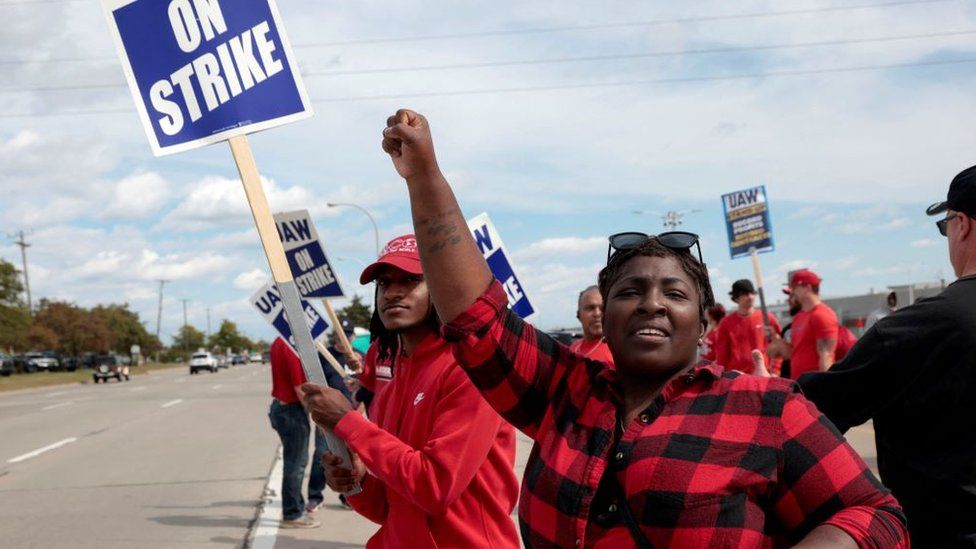General Motors is said to have struck a tentative pay deal with the United Auto Workers (UAW) union, which would clear the way for resolution of a bruising six-week strike in the US.
The deal follows agreements at Ford and Chrysler-maker Stellantis, the other two carmakers affected by the walkouts.
Nearly 50,000 workers and dozens of sites were eventually involved in the action, the first in union history to target all three firms at once.
President Joe Biden welcomed the deal.
“I think it’s great,” he said.
Mr Biden had visited a picket line at the start of the strike to express support for the workers’ cause, becoming what is believed to be the first sitting president to do so.
GM and the UAW did not immediately comment on the reports of the deal, the terms of which were not immediately available.
Ford and Stellantis had agreed to pay raises of roughly 25% over the four-year term of the new contract, as well as other changes that were important to workers, including making it easier for so-called “temporary” staff to transition to full-time and receive full benefits.
Those agreements will now be put to workers for approval.
Credit rating agency Moody’s has estimated that such a deal would add more than $1bn in costs for each of the car companies.
UAW president Shawn Fain took a hard line in negotiations, casting the car workers’ battle as part of a bigger fight against the “billionaire class”.
He provided regular public updates on the talks, a break with previous practices, at one point theatrically ripping up a company offer in a social media broadcast.
The union, which opened talks seeking pay rises of roughly 40%, has kept the companies on the defensive, selectively adding new plants to the strike since its start in September.
It declared a walkout at another GM facility on Saturday.
GM said last week that the strike had cost it $800m to date.
